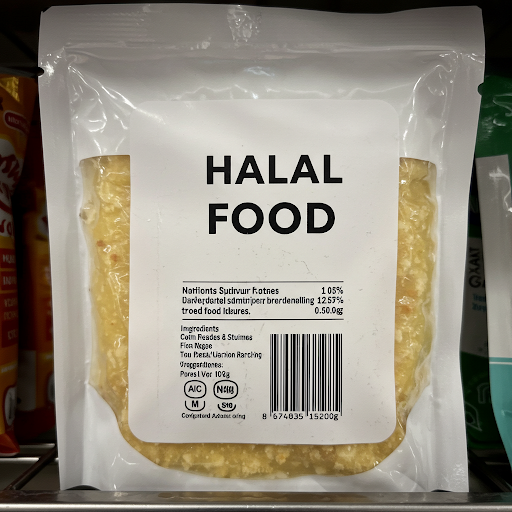In today’s globalized world, maintaining a Halal diet can be challenging yet essential for Muslims. The Quran and Sunnah provide clear guidance on what constitutes Halal food, going beyond just meat preparation to encompass all aspects of consumption.
This comprehensive guide explores:
- The Quranic foundations of Halal food
- Key differences between Halal and Haram
- Modern Halal certification processes
- Practical tips for maintaining a Halal diet
“O mankind, eat from whatever is on earth [that is] lawful and good…”
(Surah Al-Baqarah, Ayah 168)
1. What Makes Food Halal? Quranic Foundations
Definition of Halal
Halal means “permissible” in Arabic. In dietary terms, it refers to foods allowed under Islamic law.
Key Quranic Principles:
- Permissibility by Default
“It is He who created for you all of that which is on the earth.”
(Surah Al-Baqarah, Ayah 29)
- All foods are Halal unless explicitly prohibited
- Prohibition of Certain Substances
“Forbidden to you are dead animals, blood, swine…”
(Surah Al-Ma’idah, Ayah 3)
- Method of Slaughter (Zabiha)
“Eat of that over which the name of Allah has been mentioned…”
(Surah Al-An’am, Ayah 118)
2. Halal vs Haram: The Complete List
Absolutely Haram Foods:
- Pork and its by-products
- Alcohol and intoxicants
- Carnivorous animals with fangs
- Birds of prey
- Animals not slaughtered Islamically
Hadith Reference:
“What Allah has made unlawful is like what He has made lawful.”
(Sunan Ibn Majah, Hadith 2870)
Controversial Ingredients to Watch For:
- Gelatin (source must be verified)
- Enzymes (often animal-derived)
- Food additives like E-numbers
3. The Islamic Slaughter Method (Zabiha)
Requirements for Halal Meat:
Animal Must Be Healthy
- Sick animals cannot be slaughtered
Proper Slaughter Technique
- Sharp knife to ensure quick death
- Cutting throat, windpipe and blood vessels
- Spinal cord must remain intact
Invocation of Allah’s Name
“Do not eat of that over which the name of Allah has not been mentioned…”
(Surah Al-An’am, Ayah 121)
Hadith Reference:
The Prophet (PBUH) said:
“Allah has decreed kindness in everything. When you slaughter, slaughter well.”
(Sahih Muslim, Hadith 1955)
4. Modern Halal Certification
Understanding Halal Labels:
- Look for reputable certification bodies (IFANCA, HFA, JAKIM)
- Check entire ingredient list, not just “Halal” claim
- Beware of cross-contamination in processing
Global Halal Standards: Country Certification Body USA IFANCA, ISWA UK HMC, Halal Food Authority Malaysia JAKIM UAE ESMA
5. Practical Tips for Halal Eating
When Dining Out:
- Research restaurants beforehand
- Ask specific questions about food preparation
- Choose vegetarian options when uncertain
Grocery Shopping:
- Learn to identify Haram ingredients (E471, gelatin, etc.)
- Shop at dedicated Halal markets when possible
- When in doubt, leave it out
Hadith Guidance:
“Leave what makes you doubtful for what does not make you doubtful.”
(Sunan al-Tirmidhi, Hadith 2518)
6. Common Misconceptions About Halal Food
Myth vs Reality:
❌ “Kosher meat is Halal”
✅ Only if slaughtered with Allah’s name
❌ “Seafood is always Halal”
✅ Except poisonous or harmful varieties
❌ “Vegetarian means Halal”
✅ Not if contains alcohol or Haram additives
Conclusion
Maintaining a Halal diet is an act of worship that requires knowledge and vigilance. By understanding Quranic principles, proper slaughter methods, and modern certification processes, Muslims can confidently navigate today’s complex food landscape.
Call to Action:
- Audit your kitchen for Haram ingredients
- Educate family members about Halal requirements
- Support ethical Halal businesses
“O you who have believed, eat from the good things We have provided for you…”
(Surah Al-Baqarah, Ayah 172)
May Allah guide us to consume only what is Halal and pure, and make it a source of blessing in our lives. Ameen!







